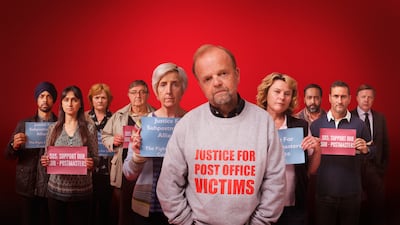Our world is dominated by news stories of those in power – economic, military and, ultimately, political power. From the historic Ottoman Empire to the US and China today, great powers have always been measured by their resources, their armed forces, the size of their territory and so on.
But there’s another kind of power that plays a part in how we see the world, and it’s the power of stories. Two recent examples illustrate the power of some stories to make us sit up and pay attention, while other stories and news reports remain merely a kind of background noise.
Story one is the battle for the soul of the US Republican Party in this presidential election year. This story is not just about Donald Trump. In the US Congress, Republican Speaker Mike Johnson is trying to keep the federal government functioning. A group of zealots within his own party threatens a government shutdown. The story of what’s at stake involves numbers that are almost unimaginable. In the 2023 fiscal year, the government spent more than $6 trillion.
Trying to grasp what a multi-trillion-dollar US government shutdown might mean is impossible for most of us to comprehend. But while the Republican-led House of Representatives wants to cut budget spending on the American people, those same politicians decided to spend $40,000 on new identification pins for themselves. These pins are small metal badges put on the clothing of House members to identify them and signify their importance. The old pins were green. The new pins are blue and gold.

The story about the trillions of dollars in the US government budget is difficult to explain. The story of $40,000 to change green pins to blue while politicians talk of cutting government spending is easy to grasp. It caused an outcry.
Something similar happened in the 1980s. President Ronald Reagan spent almost unimaginable amounts of public money on the US Defence Department. He refused to countenance any military cuts. Billions were spent, some on ambitious high-tech projects. But Pentagon documents were leaked showing the Defence Department also spent $640 on a new lavatory seat and $7,600 on some kind of coffee pot. Most Americans had no idea how much a state-of-the-art air force bomber should cost, but everyone in the 1980s knew that $640 was a very bad price for a toilet seat.
Stories, in other words, have power when we understand how they relate to our ordinary lives. And that brings us to the second story – one that has rocked Britain this month.
Every British town has a local post office. Over the past two decades, hundreds of people running British post offices were prosecuted for stealing money. More than 900 were wrongly convicted of theft. Lives were ruined, in what was a huge miscarriage of justice. But nothing much changed until this month.
A British TV drama demonstrated the power of stories by telling the story of one postmaster: Mr Bates vs The Post Office. The programme humanised the miscarriage of justice and made clear that computer software failures and the post office leadership were to blame. The result has been such a significant public reaction that the government has done more in a week than it achieved in the past decade to put right this terrible miscarriage of justice.
The key point in these wildly different stories is not so much about the facts. It’s about how stories provide empathy and understanding. When journalists tell human stories in ways that engage and matter to readers or TV viewers, those stories can change societies and political decisions. Budget shutdowns in America, miscarriages of justice in Britain, famine and war and killings from Sudan to Gaza and Israel, Yemen and elsewhere all matter. But simply to be informed of the statistics of suffering is pointless until those stories also have a human face.
Like most people, I have no idea what to do about the US federal budget, but I do know that spending $40,000 on giving members of Congress shiny new jewellery to wear on their business suits does sound crazy in supposedly hard times. Similarly, the story of 900 people convicted of cheating the Post Office in Britain was, for years, mostly just a headline without a human face. Once the story was not merely about numbers, but about a man called Mr Bates, every British TV viewer could imagine what it must have been like for him, his family and that community to go through the injustice he suffered.
The same is true for the death and suffering we hear about from around the world every day. Newspapers need to report statistics. But every story – from Gaza to the local British post office – only has a significant impact when it has a human face. Once a story has a human face, that story also has a voice, and then the world may listen.





















